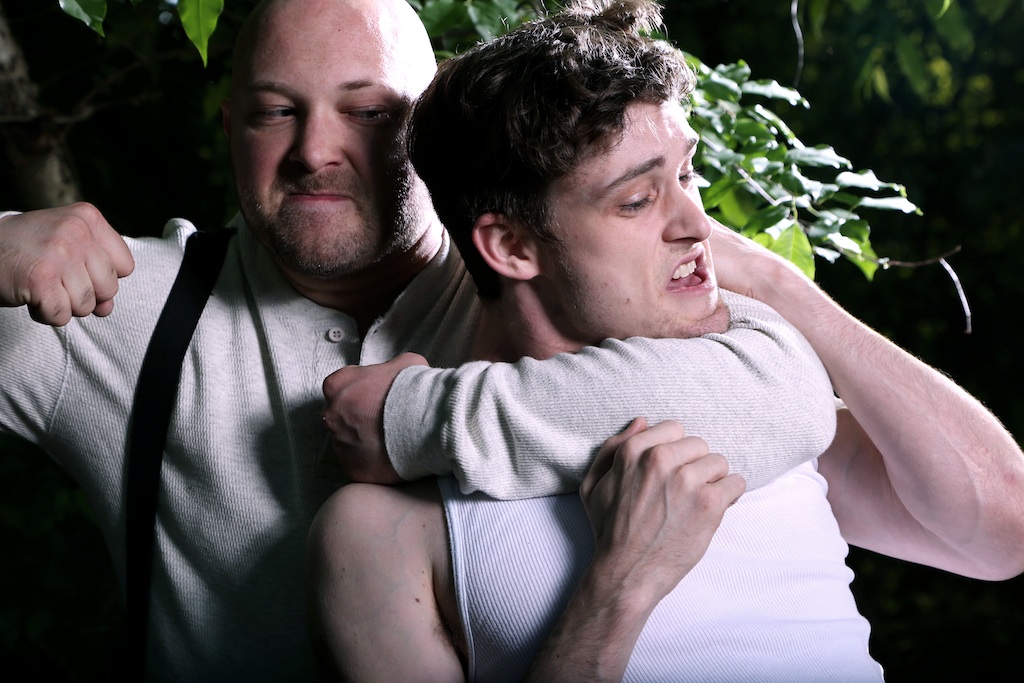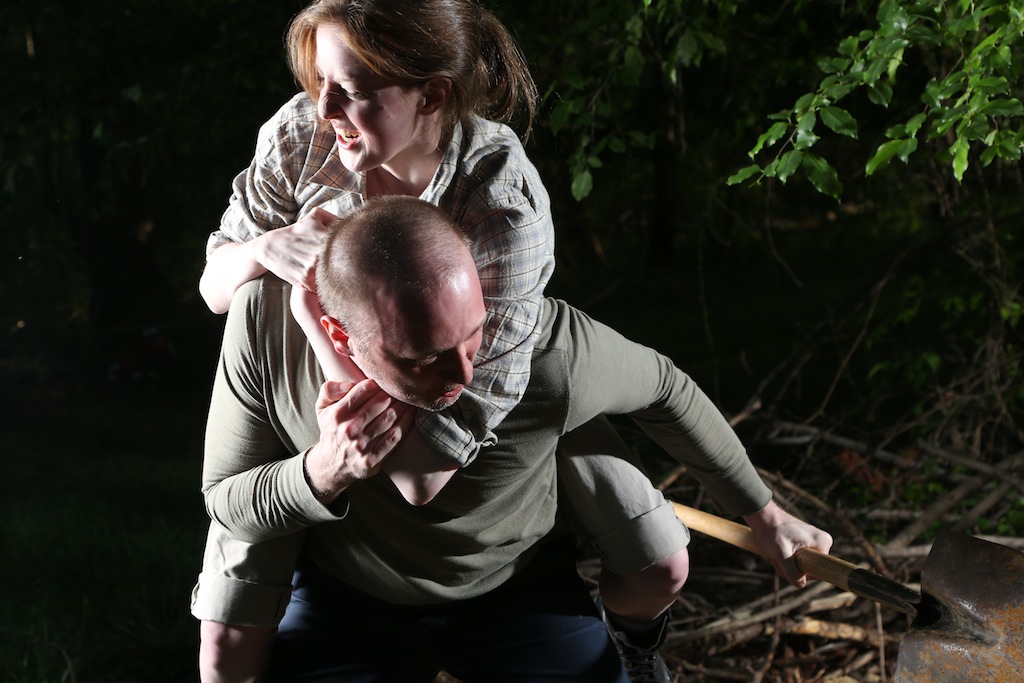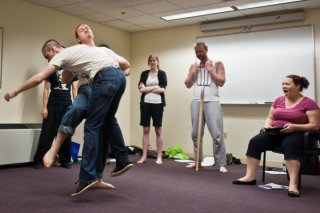
What’s a nice girl like you doing with a nasty play like this?
Funny how often this question comes up.
In rehearsal the other day, I had a moment of “wow, is this what I thought I’d be doing when I grew up?” as I watched an actor help another actor slam his head into the ground (all perfectly safe, of course) and debate how quickly the head slams should be repeated.

Billy (Carl Brandt Long) and Bart (Matthew Ward)
share a father-son bonding moment
When I first read Raising Cane: A Family Portrait, I was surprised I liked it. I definitely skew towards dark, weird plays…with specific constructs that allow for world building…okay, maybe it wasn’t such a stretch. But I didn’t realize that at first. Because of course what hits you first is how much friggin’ fighting there is in this play! In this script there are at most three pages of solid text in-between fights and that only happens twice. Then there was the language – not just the structural challenges but the vulgarity of it. Then add in the incest and backwoods culture and it’s not really what I would consider my “kind” of play. And yet…
In the midst of all this fighting, cursing, and profane stereotyping, I found real characters with complicated, interesting, well-developed relationships. They live in a world that they can see dying around them, and feel overwhelmed by the visible cracks in their society. They are frustrated by their own powerlessness to change their circumstances. In some cases, they can’t even imagine what a better circumstance would look like.

Lucy (Shaina Higgins) and Saul (John Stange) work out their issues
Out of this feeling of helplessness and claustrophobia, their mutual language of violence warps from a monthly contest into something deadly and out of control.
Grain of Sand's mission is twofold: to take familiar stories (like Hamlet) and change the way we look at it (such as removing most of Hamlet's lines) and to find the familiar in the unusual. While most of us might not have experienced living in an incestuous backwoods cult with a monthly battle of the brawn, we all know the feeling of being marginalized. We know what it is to look at our own lives - either on the small scale in the home, on the job, or on the larger world stage - and feel that we can't make a difference or don't know how to start. To know that there is something vitally wrong with the way things are being done and to feed on that frustration until eventually something has to give. That's the world these characters inhabit. And that's what connects us to this play. As for the fighting…well, that part's just fun.
-- Christine Lange, Director

Matthew Ward, Christopher Niebling, Shaina Higgins, John Stange,
and Sara Bickler practice violence in the rehearsal room.
